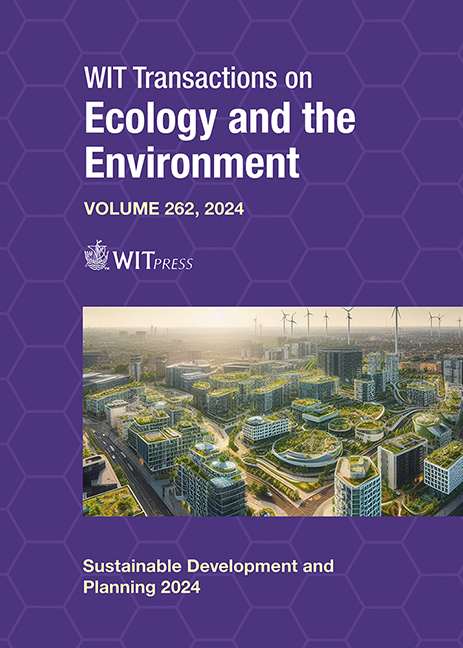ADDRESSING THE WICKED PROBLEM OF ENERGY POLICY: A DATA-DRIVEN APPROACH USING THE ANALYTIC HIERARCHY PROCESS IN AQUAVOLTAICS POLICY OF TAIWAN
Price
Free (open access)
Transaction
Volume
262
Pages
13
Page Range
33 - 45
Published
2024
Paper DOI
10.2495/SDP240031
Copyright
Author(s)
CHIA-LING LEE, SHENG-XIANG KAO, CHIEN-TE FAN
Abstract
This study explores the challenges of implementing the aquavoltaics policy in Taiwan, a classic example of a ‘wicked problem’ in energy policy due to its complexity and the diverse interests involved. Utilizing the analytic hierarchy process (AHP), the research enhances the Solar Fishery and Electricity Symbiosis Auditing Environmental and Social Inspection (SFES-ESI) framework, effectively bridging the gap between policy planning and stakeholder expectations. The AHP methodology facilitates a systematic and objective evaluation of key issues, enabling stakeholder participation and minimizing emotional biases. It helps in the effective management of conflicts, improvement of communications, and refinement of policies. Detailed AHP analysis reveals that social considerations are paramount (31.9%), followed by environmental (28.1%) and economic factors (24.3%), highlighting the need for a balanced approach that aligns solar energy policies with local values while promoting sustainable economic and environmental development. This approach provides a strategic, data-driven framework for addressing energy policy challenges in Taiwan, emphasizing multi-faceted policy-making and stakeholder engagement in sustainable development.
Keywords
aquavoltaics, analytic hierarchy process (AHP), wicked problem, public participation, energy policy, policy decision making, green conflict





